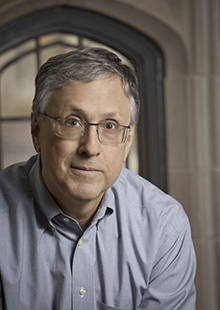Professor Tom R. Tyler has been awarded the prestigious Stockholm Prize in Criminology for pioneering and advancing research on legitimacy and procedural justice to increase trust in policing.
Tyler is the Macklin Fleming Professor of Law and Professor of Psychology and founding co-founder of The Justice Collaboratory at Yale Law School.
The Stockholm Prize in Criminology is the world’s highest honor in the field of criminology. Since 2006, the prize has recognized outstanding achievements in criminological research or the application of research results by practitioners for the reduction of crime and the advancement of human rights.
In announcing the annual award, the Stockholm Prize in Criminology Foundation said that Tyler “has made outstanding contributions to the criminology of legitimacy, especially at the micro-social level, with his theories of procedural justice shown by independent field experiments to increase community trust in democratic policing by changing the ways in which police interact with citizens.”

Yale Law School Dean Heather K. Gerken praised Tyler’s work.
“Tom Tyler is a brilliant scholar whose groundbreaking work has changed the way we think people’s relationship to the law. In co-founding the Justice Collaboratory, he has helped to create a scholarly institution of the highest order — one that has real-world impact and is a connective device inside the university.”
Tyler’s research focuses on the nature of interactions between individuals and social institutions, including police. In testing his theory of procedural justice, he has demonstrated that procedural justice is more effective than threats of punishment as deterrence He has identified the four pillars of procedural justice that help authorities such as police boost legitimacy and increase compliance and cooperation. These include:
- Respect, with all individuals treated with dignity,
- Voice, by which authorities listen to citizens seeking a chance to express their concerns and participate in decision-making processes by stating their own version of relevant facts,
- Neutrality, with unbiased decisions guided by consistent and transparent reasoning, and
- Trustworthiness, earned by decision-makers stating their motives of concern about the well-being of those affected by their decisions.
Caroline Nobo, Executive Director of The Justice Collaboratory, described the impact that Tyler has had on the field of criminology.
“Tom is most characterized by his generosity and humility. Throughout his distinguished career, he has supported many colleagues, students, and practitioners, encouraging them to lean on the theoretical foundation he built to grow their own careers and scholarship,” Nobo said. “His work around legitimacy never became siloed because he enthusiastically welcomed interdisciplinary collaboration. He continues to pursue the expansion of legitimacy to new disciplines.”
Tyler is the author of several books, including Why People Cooperate (2011); Legitimacy and Criminal Justice (2007); Why People Obey the Law (2006); Trust in the Law (2002); Cooperation in Groups (2000); and Legitimacy-Based Policing and the Promotion of Community Vitality (2022).
Tyler formed the Justice Collaboratory with Tracey Meares, the Walton Hale Hamilton Professor of Law at Yale Law School, in 2015 to bring together an interdisciplinary group of scholars and researchers at Yale and beyond to cooperatively work toward a theory-driven, evidence-informed justice system. He was awarded the Harry Kalven prize for “paradigm shifting scholarship in the study of law and society” by the Law and Society Association in 2000, and in 2012, was honored by the International Society for Justice Research with its Lifetime Achievement Award for innovative research on social justice.
Tyler joined the Yale Law faculty in 2012 as a professor of law and psychology and is a professor (by courtesy) at the Yale School of Management. He was previously a University Professor at New York University, where he taught in both the psychology department and the law school. Prior to joining NYU in 1997, he taught at the University of California, Berkeley, and at Northwestern University.
He holds a B.A. in psychology from Columbia and an M.A. and Ph.D. in social psychology from the University of California at Los Angeles
Established under the aegis of the Swedish Ministry of Justice, The Stockholm Prize in Criminology has a permanent endowment in the trust of the Stockholm Prize in Criminology Foundation. The Prize is a distinguished part of the Stockholm Criminology Symposium, an annual event taking place during three days in June. It is awarded by the Stockholm Prize in Criminology Foundation in cooperation with Stockholm University and the Swedish National Council for Crime Prevention.
This year’s prize was also awarded to Gary LaFree, author of Losing Legitimacy: Street Crime and The Decline of Social Institutions In America (1998) and founder of the National Consortium for the Study of Terrorism and Responses to Terrorism (START). LaFree has made outstanding contributions to the criminology of legitimacy, especially at the macro-social level, and in the role of ideologies.
This post was originally published on this site be sure to check out more of their content.








